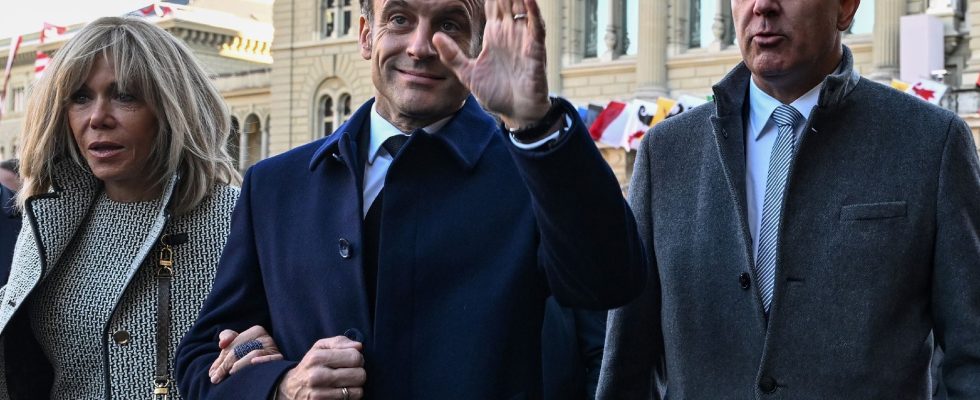The annoyance is palpable, as is often the case with Emmanuel Macron when criticism accumulates. The president went on the counter-offensive on Wednesday from Switzerland, a land of neutrality, to defend his diplomacy in the Middle East and denounce a “major political mistake” by the opponents who are boycotting his new meetings in Saint-Denis.
It is Eric Ciotti who takes the most for his rank. After pretending to be ready to participate on Friday in the second edition of these closed-door meetings between the head of state and the leaders of political parties, the head of the Republicans changed his mind, denouncing “yet another approach Communication”. Above all, he justified his defection by the absence of Emmanuel Macron on Sunday at the great Republican march against anti-Semitism in Paris.
“Using the context we are experiencing to justify an absence from a working meeting on constitutional reforms is absolutely unworthy of a political leader,” said the president during a press conference in Bern at the start of a two-day state visit.
“A major political mistake”
Beyond that, he does not hide his dissatisfaction with the drastic narrowing of this “major political initiative” launched at the end of the summer to promote unity and consensus in a second five-year term marked by divisions. While all the opponents were present at the end of August in Saint-Denis, three failed him this time: Eric Ciotti, but also the socialist Olivier Faure and the rebel Manuel Bompard.
“I think it’s a major political mistake on the part of these leaders,” he said, showing his “surprise” towards the LR and PS bosses “who had for decades to govern the France”. “They will go and explain to their voters why they are not there” to discuss widening the scope of the referendum, decentralization, Emmanuel Macron said again.
“Preserve the unity of the country”
As for the march itself, he reacted to his much-criticized absence, which he had not really explained to the French. This debate “had no place”, he dismissed, explaining that he did not have to demonstrate his “personal” and “relentless” commitment against “all forms of anti-Semitism”.
“My role is not to take a walk,” he added, ensuring that he focuses on the need to “preserve […] the unity of the country”, and to “help in the release of our hostages”, held by Hamas since its unprecedented attack on October 7 in Israel.
In passing, he indirectly attacked the National Rally, which took part in the march, plunging the left and part of Macronie into embarrassment. “Protecting French people of Jewish faith does not mean pillorying French people of Muslim faith,” he said as if to question the sincerity of the fight against anti-Semitism displayed by the extreme party. RIGHT. Eric Ciotti reacted on BFMTV by in turn calling it “unworthy […] the absence of the president” at the rally.
He reaffirms his position in the Middle East
If Emmanuel Macron deviated from the unwritten rule – and variably respected – according to which a president does not respond to domestic political questions from abroad, it is perhaps because his own position on Israel and Gaza is also put into question. cause.
A group of French diplomats in the Middle East wrote a memo criticizing its regional policy and deploring a pro-Israeli bias, the contents of which were leaked in Le Figaro. But, a sign of a difficult balance to find, the president’s comments to the BBC urging the Jewish state to “stop” the bombings killing civilians offended the Israeli authorities.
He explained this with his counterpart Isaac Herzog, but no call with Prime Minister Benjamin Netanyahu was made public, a sign of a certain unease in Franco-Israeli relations. In his own camp, this conflict and the presidential position are bringing divisions to the surface.
These criticisms “show that our position must be balanced,” noted the head of state. “We fully recognize Israel’s right to defend itself and fight terrorism, but because Israel is a democracy […] this right to defend oneself must fall within the framework of international humanitarian law and respect the rules of war […]. We have never varied,” he insisted.
